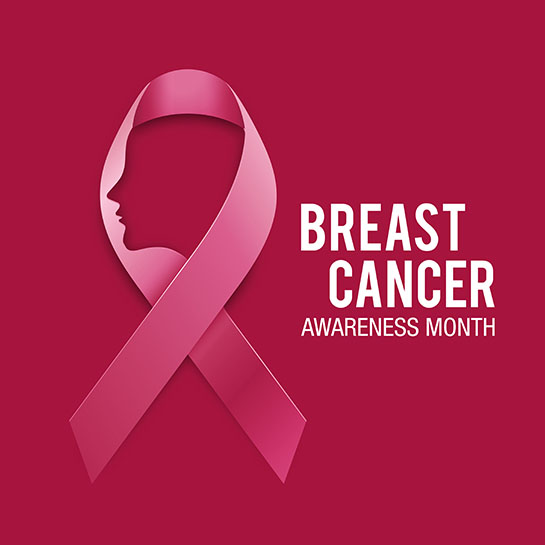October is Breast Cancer Awareness Month. While most people are aware of breast cancer, along with common treatments including surgery, radiation, and chemotherapy, most aren’t aware of the oral complications of cancer therapy. Here at the office of Doctor Andrew W. Skorobatckyj, DDS in Parma, Ohio we pride ourselves on being strong supports of Breast Cancer Awareness Month. That’s why in this week’s blog, we’re taking a look at potential oral complications of cancer therapy and what can be done to maintain good oral health during and after treatment.
How Do Oral Complications Arise?
Chemotherapy and radiation therapy are two treatments physicians can use to slow and stop cancers from growing. Similar to other cancer treatments, chemotherapy and radiation therapy have various side effects and complications. Oral complications occur because the treatments target the rapidly dividing cancer cells. Unfortunately, the cells in the mouth: salivary glands, taste buds, and oral mucosal cells divide rapidly as well, and can be killed off by mistake.
Who Gets Oral Complications?
According to a study by the American Cancer Society, up to 40 percent of patients receiving primary chemotherapy will have oral complications. There are differences in the risk of developing these complications depending on the therapy. More aggressive and myelosuppressive therapy has a higher incidence of complications.
Acute vs. Chronic Complications
There are two classifications of oral cancer therapy complications: acute and chronic. The acute oral complications begin within three weeks of therapy initiation. These complications include:
- The lining of the inside of your mouth can become inflamed and painful.
- The taste buds of the tongue can become dysfunctional which leads to an altered taste sensation.
- The glands in your mouth that make saliva can shrink causing severe dry mouth.
Chronic complications start to occur six months after treatment begins. The long-term effects of having inflamed mucosa include:
- The shrinking of tissues
- The development of oral sores
- Increased risk of fungal or viral infections
What Can Be Done about Oral Complications of Cancer Therapy?
Minimizing the potential oral complications of chemotherapy and radiation can be done by paying particular attention to good oral hygiene. Before you begin cancer therapy, you should schedule an appointment with your dentist who can identify any pre-existing trauma in the mouth, eliminate any possible sources of infection, and help educate you on good oral hygiene habits to begin during therapy.
Some tips you should follow:
- You should brush your teeth twice a day for two to three minutes and floss daily.
- Every two to three hours you should rinse your mouth using a salt and baking soda combination to prevent dry mouth.
- Use lip care products to prevent chapped lips and cracking.
- Dental appointments should regularly be made to follow up on any potential complications.
Oral hygiene during cancer treatments is essential to maintain the effectiveness of treatments and to prevent hospital admissions. Schedule an appointment with your dentist today!
 About Andrew W. Skorobatckyj, DDS
About Andrew W. Skorobatckyj, DDS
Andrew W. Skorobatckyj, DDS is an orthodontist serving patients in Parma, Ohio. Dr. Skorobatckyj welcomes patients of all ages and utilizes the latest orthodontic technologies at his practice. In addition to practicing orthodontics, Dr. Skorobatckyj is also an Assistant Clinical Professor of Orthodontics at Case Western Reserve University School of Dental Medicine, where he received his Doctorate of Dental Surgery. After graduating from CWRU, he received special orthodontic training at Nova Southwestern University. Dr. Skorobatckyj is a member of the American, Great Lakes, and Cleveland Orthodontic Societies as well as the American, Ohio and Greater Cleveland Dental Associations.
Stay connected with Doctor Andy on Social Media!





